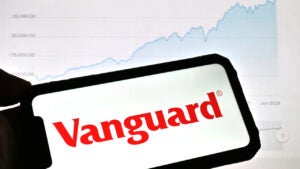Best short-term bond funds in February 2026

Bond prices have been volatile in recent years as the Federal Reserve hiked interest rates to combat high inflation, but with rate cuts paused for now, investors may still be able to take advantage of attractive yields in short-term bonds.
Here’s what you should know about short-term bond funds and some of the best ones to consider for your portfolio.
What are short-term bond funds?
Short-term bond funds are mutual funds and exchange-traded funds (ETFs) that typically invest in government and corporate bonds with maturities of less than five years. Bonds with shorter times to maturity are less sensitive to changes in interest rates than longer-term bonds, meaning investors won’t suffer as much if rates head higher. Remember, interest rates and bond prices move in opposite directions, so as rates rise, bond prices fall and vice versa.
Investors in short-term bond funds earn a yield, which measures the income produced by the bonds in the portfolio relative to the current market price.
Who should invest in short-term bonds?
Short-term bond funds can make sense for many different investors, but they’re particularly well-suited for those saving for short-term investment goals. Money that you think you’ll need in the next three to five years can be invested in short-term bonds.
Short-term bonds can be a nice way for investors to earn a return above what they’d get in a traditional savings account without exposing themselves to too much interest-rate risk.— James Royal, Ph.D., Bankrate Investing and Wealth Management Principal Writer
Pay special attention to a fund’s expense ratio, or fee, before investing. All else being equal, the lower the expense ratio is, the better off you’ll be as an investor.
Top short-term bond funds
*Data below as of October 3, 2025.
SPDR Portfolio Short-Term Corporate Bond ETF ( SPSB )
The SPDR Portfolio Short-Term Corporate Bond ETF aims to track the performance of the Bloomberg U.S. 1-3 Year Corporate Bond Index. The fund offers exposure to U.S. corporate bonds with maturities between one and three years.
- Yield: 4.7 percent
- Expense ratio: 0.04 percent
- AUM: $8.0 billion
iShares 1-5 Year Investment Grade Corporate Bond ETF ( IGSB )
This iShares fund aims to track the performance of an investment-grade corporate bond index with maturities between one and five years. Holdings include bonds issued by Bank of America, Wells Fargo and T-Mobile USA.
- Yield: 4.2 percent
- Expense ratio: 0.04 percent
- AUM: $21.4 billion
Schwab 1-5 Year Corporate Bond ETF ( SCHJ )
The Schwab 1-5 Year Corporate Bond ETF seeks to track the total return of an index measuring the performance of the short-term U.S. corporate bond market. The fund holds corporate bonds with remaining maturities between one and five years.
- Yield: 4.3 percent
- Expense ratio: 0.03 percent
- AUM: $605.2 million
Vanguard Short-Term Bond ETF ( BSV )
The Vanguard Short-Term Bond ETF aims to track the performance of a market-weighted bond index made up of investment-grade bonds with a dollar-weighted average maturity of 1-5 years. The fund holds government bonds, high-quality corporate bonds and investment grade international dollar-denominated bonds.
- Yield: 3.7 percent
- Expense ratio: 0.03 percent
- AUM: $64.9 billion
Fidelity Short-Term Bond Fund (FSHBX)
The Fidelity Short-Term Bond Fund aims to produce a high level of current income while preserving capital. It typically invests at least 80 percent of its assets in all types of investment-grade debt and maintains a dollar-weighted average maturity of three years or less.
- Yield: 4.2 percent
- Expense ratio: 0.30 percent
- AUM: $2.5 billion
Bottom line
Short-term bond funds can be a good place to invest money that you may need in the next few years. Keep in mind that these funds are not risk-free, though they are safer than investing in high-yield bonds or the stock market. Investors looking to earn yields with even less risk, might consider money-market funds.
Editorial Disclaimer: All investors are advised to conduct their own independent research into investment strategies before making an investment decision. In addition, investors are advised that past investment product performance is no guarantee of future price appreciation.
Why we ask for feedback Your feedback helps us improve our content and services. It takes less than a minute to complete.
Your responses are anonymous and will only be used for improving our website.






